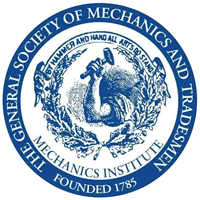We are now accepting applications for the Fall 2025 Semester! The deadline for all applications is Friday, July 18th at 5pm.
Please visit our Admissions page for more information.
Electrical Technology is a two-year educational program discipline designed to provide students with a practical understanding of electrical work as it applies to the field of construction. Classes are taught Monday and Wednesday evenings from 5pm-8pm.
Sample Electrical Technology Two-Year Curriculum
First Year – Fall Semester
Introduction to the National Electric Code
This is an introductory course on the use and interpretation of the National Electric Code (NEC). Students will learn the purpose and history of the code; develop a working knowledge of the code requirements for wiring, overcurrent protection, materials and equipment; be able to discern between wiring methods used in different occupancies, special occupancies, special equipment, special conditions and communication systems; and be able to use the NEC tables to size conduit raceways.
Electricity for the Trades 1 – DC Circuit Analysis
This is an introductory course for students in the electrical trade. The objective is for students to understand and perform circuit analysis on Direct Current (DC) circuits. The course will instruct the students on the basics of DC circuit analysis and covers definitions of conductors and insulators, current (I), voltage (V), resistance (R), and resistive circuits, power (P), work, energy, capacity factor, and efficiency. The course includes analysis of series, parallel, and series/parallel DC circuits using Ohm’s law and Kirchoff’s laws, source conversions, superposition, and Thevenin’s and Norton’s theorems and equivalent circuits.
First Year – Spring Semester
Electricity for the Trades 2 – AC Circuit Analysis
This is an introductory course for students in the electrical trade. The objective is for students to understand and perform circuit analysis on Alternating Current (AC) circuits. The course builds on what students learned from the DC circuit analysis class but expands to Alternating Current (AC) circuit analysis.
This course introduces students to how alternating current is generated, sinusoidal waveforms, AC power, phasors and phasor analysis of AC circuits with reactance (X) and impedance (Z), capacitance (C), and inductive (L) components. Students will solve simple RC – RL – and RLC circuits, using node, voltage, and mesh current analysis, superposition, Thevenin’s and Norton’s network theorems and equivalent circuits.
Electrical Print Reading & Troubleshooting
Students will learn the fundamentals of electrical print reading to include single line diagrams, schematic diagrams, wiring diagrams, connection, and raceway diagrams. Students will learn to read specification manuals and prints as applied to electrical installations in residential, commercial and industrial buildings.
Students will be introduced to some measuring and test equipment and will learn basic troubleshooting skills to determine voltage readings, resistance measurements, circuit continuity, open circuits, short circuits, and grounds.
Second Year – Fall Semester
Electric Motors & Motor Controls
This course is intended to introduce students to the various types of DC and AC motors and also their control circuits, motor contactors, starters, limit switches, and ladder diagrams. Students will also learn to identify and understand the symbols used in common control circuit drawings.
Residential Wiring
This course covers residential wiring methods and implementing the NEC requirements. Installation rules and circuit designs for switches, receptacles, luminaires, and appliances will also be discussed.
Second Year – Spring Semester
Commercial & Industrial Wiring
This course builds on residential wiring and covers commercial and industrial wiring methods, and implementing the NEC requirements. Conductor sizing and various wiring methods and the installation of electrical systems in commercial and industrial occupancies are to be discussed.
Electrical Estimating
Students will be taught to professionally and correctly estimate electrical work and submit a competitive bid. Course topics covered include initial review of plans and specifications; set-up of take-off and pricing sheets; formulating Request For Information (RFI); preparing the take-off sheet; preparation of Material & Equipment (M&E) list for vendor pricing; labor values; set-up of and transfer of information to “Recap” sheets; preparing the summary sheet; final senior-level review; and, preparation and submission of the bid.
For more information, please email admissions@generalsociety.org.
